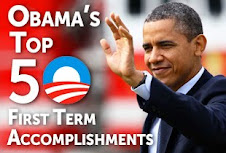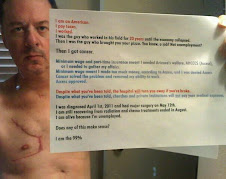Published on Tuesday, October 16th, 2012 at 9:20 p.m.
President Barack Obama and former Massachusetts Gov. Mitt Romney clashed at a town hall debate Tuesday with talking points that both used and abused the truth.
The candidates aggressively challenged one another on the truthfulness of their statements in front of 82 uncommitted voters at Hofstra University in the second presidential debate of 2012. But that didn't mean they were always truthful themselves.
We'll be updating this story as we post more fact-checks. Here's what we've checked so far.
Jobs
A 20-year-old college student asked the first question — about jobs.
Romney said that, "with half of college kids graduating this year … without a job, and without a college-level job, that's just unacceptable." We've previously checked his statement that, "Fifty percent of kids coming out of school can't get a job." In that version, he missed a key qualifier — according to the research, about a quarter of recent college grads literally can’t find a job, while another quarter have found a job, but one that doesn’t require a college degree. We rated his previous claim Mostly True.
Obama responded in part, "What I want to do is build on the 5 million jobs that we've created over the last 30 months in the private sector alone." That’s true only using the most cherry-picked time frame. A more reasonable method — starting the count at the beginning of the recovery — shows a gain of 3.6 million jobs. That’s still a substantial number, but well short of the 5 million Obama claimed. We rated his statement Half True.
Obama also mentioned in his response that Romney once said we should "let Detroit go bankrupt." We checked a similar claim from Jennifer Granholm, former governor of Michigan, at the Democratic National Convention in September. She said that Romney's response to the crisis in the auto industry was, "Let Detroit go bankrupt." Romney did use the words about letting Detroit go bankrupt in a CBS TV interview, but his meaning was more nuanced and he emphasized that he was not referring to liquidation. We rated Granholm's statement Half True.
Asked about fair pay for women, Obama was quick to bring up the first piece of legislation he signed into law — the Lilly Ledbetter Fair Pay Act. "I just want to point out that when Gov. Romney's campaign was asked about the Lilly Ledbetter bill, whether he supported it, he said, ‘I'll get back to you.’ And that's not the kind of advocacy that women need in any economy." Indeed, a Romney adviser did say earlier this year that he would "get back" to a reporter about whether he supported the act. A spokeswoman then said he would not change it, and Romney later said he "certainly support(s) equal pay for women," and has "no intention of changing that law." So Obama is correct about the initial statement, though Romney later clarified by saying he wouldn't change the law. We rated Obama's claim Mostly True.
Romney answered criticism from Obama on Chinese investments by claiming that the president has pension investments that include Chinese firms, and "investments through a Caymans trust." Romney told Obama: "You also have investments in Chinese companies. You also have investments outside the United States. You also have investments through a Caymans trust." It’s an accurate set of statements when you consider investments made by managers of the Illinois pension fund in which Obama has an account. As we noted in reviewing previous claims about Romney’s investments in China, the investments involved are indirect and — as far as anybody has said — made without the knowledge of the account-holder. With that clarification, we rated Romney’s statement Mostly True.
Energy
Romney talked about energy as a pocketbook issue, charging that the president's policies were cutting oil production on federal land. "As a matter of fact," he said, "oil production is down 14 percent this year on federal land." The statistic, from fiscal year 2011, cherry-picks the most unflattering oil production numbers under the Obama administration and ignores the impact of events well outside the president’s control: changes in technology, decades of presidential policy, and most importantly, the Deepwater Horizon spill. If you look at production since 2009, oil production rose two of three years, for a net increase of 10.6 percent. We rated Romney's claim Half True.
Obama addressed Romney, saying, "When you were governor of Massachusetts, you stood in front of a coal plant and pointed at it and said, 'This plant kills.'" Romney was the newly elected governor when a showdown erupted over the coal-burning Salem Harbor Power Station. Obama quoted Romney accurately when he said the governor entered the controversy by saying the plant "kills people." We rate his statement True.
Taxes and spending
Obama said, "I said I would cut taxes for small businesses, who are the drivers and engines of growth. And we've cut them 18 times." He made a similar claim in the Denver debate, and last summer. When we examined his claim last year that his administration had "provided at least 16 tax cuts to small businesses," we rated it Mostly True, noting that conservative tax specialists say the statistic ignores proposed and enacted tax hikes on small businesses.
Obama also claimed that Romney "wants to spend $2 trillion on additional military programs even though the military's not asking for them." The president said much the same thing at the first debate, when he said Romney's plan called for "$2 trillion in additional military spending that the military hasn't asked for." Independent analysts confirm that number, and Romney did not deny it. We rated the statement True.
Obama challenged the math of Romney's tax plan. Romney fired back: "When we're talking about math that doesn't add up, how about $4 trillion of deficits over the last four years, $5 trillion?" We recently checked a related ad from American Crossroads that claimed Obama’s "spending drove us $5 trillion deeper in debt." Not all of the $5 trillion can be attributed to Obama's spending. More than half can be attributed to his tax cuts and the policies of President George W. Bush. We rated the ad's claim Half True.
Health care
Obama said, "You know, there are some things where Gov. Romney is different from George Bush. George Bush didn't propose turning Medicare into a voucher." Obama made a similar claim at the first debate, that Romney "would turn Medicare into a voucher program." The plan would give seniors a premium support payment toward private insurance, to replace the current system of government payments to doctors and hospitals. Generally, we think "voucher program" is a fair way of describing to voters the vision for Medicare under a Romney-Ryan administration. We rated Obama's claim Mostly True.
Obama claimed Romney has suggested that "employers should be able to make the decision as to whether or not a woman gets contraception through her insurance coverage." Romney says he doesn’t believe bureaucrats or employers should make the call whether a woman can use contraceptives. But his support earlier this year for the Blunt amendment — which would have exempted employers from providing any service that went against their "beliefs or moral conviction" — endorses the approach that employers should be able to make the decision about whether contraception is covered by employees’ insurance. We rated Obama’s claim True.
Immigration
Romney claimed that Obama, "said in his first year he'd put out an immigration plan that would deal with our immigration challenges. (But he) didn't even file it." Obama did make the promise in 2008 and while he talked about moving forward, he did not. We rated Romney's statement True.
Obama said, "We put more border patrol on the (U.S.-Mexico border than at) any time in history, and the flow of undocumented workers across the border is actually lower than it's been in 40 years." Obama is right about the numbers of Border Patrol agents and on the immigrant flows across the border. However, it’s a stretch for him to suggest that his administration is the primary reason for record numbers -- the growth began under Bush. And while law enforcement matters, so do economic conditions in both the United States and Mexico as well as crime on the Mexican side of the border. We rated Obama’s claim Half True.
Obama continued his contrast of Romney's policies versus Bush, adding, "George Bush embraced comprehensive immigration reform. He didn't call for self-deportation." PolitiFact Georgia earlier this year tracked Romney's statements on immigration, and he has consistently talked about an immigration approach of supporting policies that encourage illegal immigrants to return to their homeland.
Obama also claimed Romney said during the Republican primary, "I will veto the DREAM Act," a law that would provide a path to legal status to young people who are in school. Obama adviser David Plouffe has made a similar claim, that, "Gov. Romney was very clear, he would veto the DREAM Act." Romney did say that, without equivocation, during the Republican primary. We rated the claim True.
Obama said Romney "called the Arizona law a model for the nation," adding that "part of the Arizona law said that law enforcement officers could stop folks because they suspected maybe they looked like they might be undocumented workers and check their papers." We found Obama mischaracterized Romney’s salute to Arizona’s 2007 mandate that employers electronically verify the legal status of employees. That E-Verify requirement was not in the 2010 Arizona law, known as S.B. 1070. It’s no secret that Romney has been supportive of S.B. 1070, but it’s incorrect to say he argued it was a "model for the nation." Romney’s support for the law has been consistently framed by support for the right of states to choose their own path. We rated Obama's claim False.
As Romney and Obama tangled over immigration, Obama interjected, "This used to be a bipartisan issue." Obama made a similar claim in June about the politics of the DREAM Act. He said it "was written by members of both parties. When it came up for a vote a year and a half ago, Republicans in Congress blocked it. The bill hadn’t changed. ... The only thing that had changed was politics." Obama’s comment glossed over some of the details, but his statement this summer was largely correct. We rated it Mostly True.
Foreign policy
The candidates tangled over the Obama administration's response to the recent attack in Libya that claimed the life of the U.S. ambassador and three other Americans. Romney said, "It took the president 14 days before he called the attack in Benghazi an act of terror." In fact, Obama described it in those terms the day after the attack. But in the days that followed, neither he nor all the members of his administration spoke consistently on the subject. There were many suggestions that the attack was part of demonstrations over an American-made video that disparaged Islam. We rated Romney's statement Half True.
As the candidates clashed over foreign policy, Romney charged that, "the president's policies throughout the Middle East began with an apology tour." We've repeatedly rated this claim from Romney, including his remarks at the Republican National Convention in Tampa. A review of Obama’s foreign travels and remarks during his early presidency showed no evidence to support such a blunt and disparaging claim. (In later years, we found two formal apologies, but they were not at the start of his presidency and not part of a tour.) While Obama's speeches contained some criticisms of past U.S. actions, he typically combined those passages with praise for the United States and its ideals, and he frequently mentioned how other countries had erred as well. We found not a single, full-throated apology in the bunch. Calling those remarks "an apology tour" is a ridiculous charge. We have once again rated his statement Pants on Fire.
Education
Romney, answering a question about gun control, talked about changing the culture of violence. "How are we going to do that? ... There are a number of things. (Obama) mentioned good schools. I totally agree. We were able to drive our schools to be No. 1 in the nation in my state." We previously rated a claim from Romney that Massachusetts schools "are ranked No. 1 of all 50 states." (We didn't grade him on whether he gets credit or not — boosted investment in the state's schools was well under way when Romney took office.) But Romney has good reason to say Massachusetts has the nation’s best schools. Although there’s no yardstick comparing the quality of schools by state, by several measures — though not all — he is right. We rated the claim Mostly True.
Hear something you would like checked? Tag a tweet #PolitiFactThis. You may also email us ideas at truthometer@politifact.com.






 Republican presidential nominee Mitt Romney (left) and
President Barack Obama (right) mix it up during Tuesday's debate in New
York.
Republican presidential nominee Mitt Romney (left) and
President Barack Obama (right) mix it up during Tuesday's debate in New
York.
























No comments:
Post a Comment